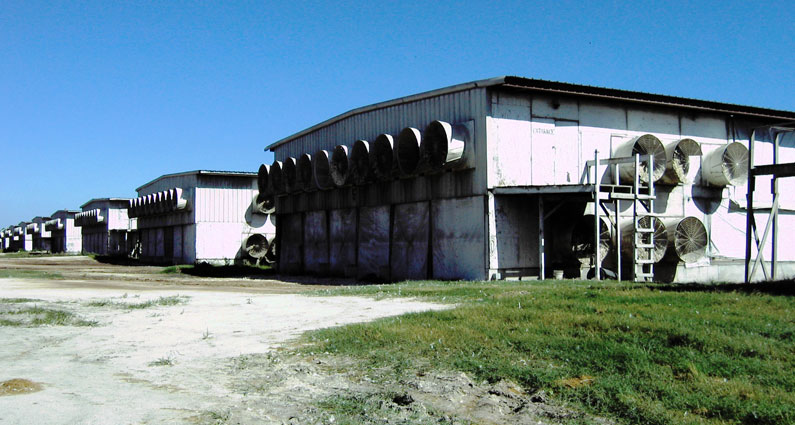May 26, 2016 | News & Information
Primate Products, a laboratory animal supplier in Immokalee, has filed a lawsuit against the Florida Department of Agriculture and Consumer Services in an attempt to prevent the release of health certificates and other records its claims contain “trade secrets.” Curiously, in the lawsuit Primate Products claims that it first learned the department was keeping copies of the certificates in December 2014. That was the month that ARFF released our latest summary of Primate Products customers, which we compiled from records received from the Department of Agriculture in response to a public records request. It is curious because ARFF released similar summaries in 2013, 2012 and 2011. (ARFF is not mentioned in the lawsuit.)
We hope that the Florida Department of Agriculture and Consumer Services will vigorously defend itself against Primate Products’ lawsuit, and defend the public’s right of access to governmental records.
March 31, 2016 | News & Information
For many years, ARFF has called for the retirement of Cora, an Asian elephant owned by Bill Morris of Gibsonton, Florida. ARFF believes that Cora is over 60 years old. She may be the oldest elephant still traveling and performing in the country. The below photo is of Cora at this year’s Collier County Fair in Naples. The fair ended on Sunday, March 27. According to reports, Bill Morris died on Sunday. It is not known what his death will mean for Cora.

January 29, 2016 | News & Information
Two Shrine temples in Florida that have sponsored annual circuses for many, many years are responding to declining membership and revenues by putting their properties up for sale. Orlando’s Bahia Shriners and the Amara Shriners of Palm Beach Gardens have both listed their building and property for sale.

The Bahia Shriners have come to the conclusion that their building is too big. A resolution adopted in November explained, “The membership has declined over the years and the dues cannot support the operations of the building.” The potential sale of the Amara Shriners’ large grass lot next to their temple building is especially encouraging, since the lot was used each year by the circus to set up its big top. ARFF is hopeful that the temple will not host a circus in 2016.
The fraternal organization needs to improve its image and attract new members. Getting rid of cruel animal circuses would be a good step toward turning around a struggling organization.
January 8, 2016 | News Releases
For Immediate Release: January 8, 2016
(Miami) – Activists with the Animal Rights Foundation of Florida (ARFF) will work to educate the public about the cruelty of the circus on opening night of the Ringling Bros. and Barnum & Bailey Circus in Miami. A large turnout is expected. To coincide with ARFF’s protests, advertisements on 20 local taxi cabs will draw attention to Ringling’s cruel training of baby elephants.
WHAT: Circus protest
WHEN: Friday, January 8, beginning at 6:00pm
WHERE: American Airlines Arena, 601 Biscayne Blvd., Miami
In March 2015, the Ringling Bros. and Barnum & Bailey Circus announced that it would retire its elephants from circus performances by 2018. ARFF is calling for Ringling to immediately retire its elephants and to eliminate ALL animal acts.
“Ringling Bros. has recognized that the public is turning away from cruel animal acts,” said ARFF Communications Director Don Anthony. “Unfortunately, Ringling Bros. is delaying taking elephants off the road until 2018 and will continue to transport elephants, tigers and other wild animals thousands of miles chained in boxcars and stuffed inside transport cages, and to force animals to perform unnatural tricks on demand.”
Ringling Bros. has a long history of poor animal care. In 2011, Ringling Bros. paid a $270,000 fine to the USDA to settle allegations that it violated animal welfare laws in its handling of elephants, tigers and other animals. The fine was the largest ever against a circus! The alleged violations include elephants forced to perform when they were sick.
# # #
December 31, 2015 | News & Information
This week The Florida Times-Union profiled the St. Augustine Wild Reserve, a nonprofit wildlife sanctuary. Its founder Deborah Warrick spoke to the paper about two male ligers, who arrived at the sanctuary from The Institute of Greatly Endangered and Rare Species (T.I.G.E.R.S.). “They were no longer needed for the shows, so they gave them to us,” Warrick said.
T.I.G.E.R.S., which produces exploitive animal shows at Jungle Island in Miami, is known for its irresponsible breeding of animals such as white tigers and “ligers” (tiger/lion hybrids). In 2014 they made a big deal about the birth of a litter of ligers. Sadly, it appears that once the animals got too large to be used in money-making shows and photo-ops, they were discarded.
Warrick also mentioned the health problems that many hybrid big cats suffer from: “You can see when they walk that they have bad hips. It’s just not a good thing to do, to produce a hybrid like this.”
November 6, 2015 | News & Information
On September 21, the U.S. Department of Agriculture conducted a routine inspection at Animal Adventures, a private zoo in Okeechobee. The inspector found shocking violations of federal regulations:
 An adult lion with a life threatening medical condition (pyometra) was not seen by a veterinarian. The lion’s condition deteriorated and she was euthanized by a gunshot to the head. The USDA cited Animal Adventures for inadequate veterinary care for failing to have the lion examined and her condition treated. The facility was also cited for using a firearm, when “other more acceptable methods are available.” Gunshot can be a humane method of euthanasia, but only if performed by well trained and experienced personnel with an appropriate firearm.
An adult lion with a life threatening medical condition (pyometra) was not seen by a veterinarian. The lion’s condition deteriorated and she was euthanized by a gunshot to the head. The USDA cited Animal Adventures for inadequate veterinary care for failing to have the lion examined and her condition treated. The facility was also cited for using a firearm, when “other more acceptable methods are available.” Gunshot can be a humane method of euthanasia, but only if performed by well trained and experienced personnel with an appropriate firearm.- A female tiger cub was found injured on the morning of August 28. The veterinarian, via telephone, prescribed medications but the cub’s health deteriorated and she died later that day. Again, Animal Adventures was cited for inadequate veterinary care for failing to have the cub examined and treated by a veterinarian.
- A solitary brown lemur was found housed inside a barn without being able to see or hear any other animal. “When first observed,” the USDA inspector wrote, “this animal was doing repetitive backflips which could be indicative of psychological distress.”
- The USDA inspector also reported that a red fox was suffering from a serious eye condition that was not being treated, and that shelters for bobcats, tigers and bears were badly damaged and hazardous to the animals.
These are only the latest in a long list of animal deaths and other problems at Animal Adventures. In 2013, Animal Adventures agreed to pay a $4,107 fine to settle allegations that it violated the Animal Welfare Act.
October 28, 2015 | News & Information
The Cole Bros. Circus will perform in Port St. Lucie, November 5-8.
The City of Port St. Lucie and St. Lucie County require circuses to have a veterinarian on duty. Local veterinarian Dr. Enrique Borrego is once again acting as the circus’ veterinarian. Please contact Dr. Borrego and politely urge him to reconsider acting as the circus vet. Without a veterinarian willing to help the circus meet the permit requirements, the circus could not perform in St. Lucie County. Contact:
Enrique Borrego, DVM
Animal General Hospital
501 SW Port St. Lucie Blvd.
Port Saint Lucie, Florida
Phone: (772) 344-8835
Online comment form.
Post a comment on Facebook.
Ask Dr. Borrego if he approves of the treatment of elephants, tigers and other animals in traveling circuses? Urge him to visit ARFF’s website to learn more about the Cole Bros. Circus’ horrible history. Problems in recent years have included: failure to provide necessary veterinary care, cruel treatment of an elephant, inexperienced animal handlers, and violating the Endangered Species Act! Let Dr. Borrego know that you don’t support businesses that support cruel circuses.
*Please share with ARFF any responses that you receive.
October 8, 2015 | News & Information

The recently-announced Okeechobee Music & Arts Festival promises three days and nights of music, including more than 80 acts performing at five stages. It will also be a great opportunity for animal advocates to educate large crowds about the suffering of chickens in Florida’s egg industry.
The festival (“Florida’s biggest-ever camping festival”) will be held in March 2016 at a property that happens to be a mile down the road from one of Florida’s largest egg farms. The farm, owned by Cal-Maine Foods, the largest producer of shell eggs in the United States, confines hundreds of thousands of chickens in bare wire cages so small that they cannot even spread their wings. Click here for video from inside the farm.
For the most part, factory farms in Florida are in out-of-the-way locations. It’s not everyday that you have thousands of people driving by a factory farm. ARFF is exploring creative ways to spread a compassionate message to festivalgoers. Stay tuned!
September 29, 2015 | News & Information

During an August 19 visit, a U.S. Department of Agriculture inspector counted 114 sheep inside the Pearlman Biomedical Research Institute at Mount Sinai Medical Center in Miami Beach. (The two-story, nondescript building at the north end of the medical center complex can be seen from the Julia Tuttle Causeway.)
Sheep are used at Mount Sinai in studying asthma and other lung diseases. A 2012 study was typical of the research. A group of sheep were restrained in a “modified shopping cart,” with their heads immobilized. A tube was inserted into the nostril and a nebulizer used to deliver a toxin into the lungs.
Research using sheep has been going on at Mount Sinai Medical Center since at least 1982. In 2003 the Sun Sentinel published an article in which former employees told horrible stories of animal mistreatment, including sheep left unattended in shopping carts that sometimes fell over (leaving one sheep with broken legs), another sheep found dead with her neck caught in cage bars, and sheep killed by malfunctioning nebulizers.
Sheep are intelligent animals who experience fear, boredom and despair. We’re certain that sheep would rather be anywhere else than stuck inside a building in Miami Beach.
Photo: Farm Sanctuary
September 25, 2015 | News & Information
 Last week, the St. Lucie County Commission unanimously approved a strong anti-tethering ordinance, making it illegal to tie up a dog outdoors unless a guardian is outside along with the dog. Commissioners also adopted new standards to protect guard dogs.
Last week, the St. Lucie County Commission unanimously approved a strong anti-tethering ordinance, making it illegal to tie up a dog outdoors unless a guardian is outside along with the dog. Commissioners also adopted new standards to protect guard dogs.
Please thank the St. Lucie County Board of County Commissioners for their compassionate vote. Click here to send a note to commissioners.
Continuous chaining is bad for dogs. Dogs are very social animals who suffer from isolation. Chained dogs are much more likely to become aggressive. In addition, dogs confined on chains are at risk of becoming tangled and injured, are more likely to have skin problems and problems with parasites, and are often exposed to bad weather.
A growing number of cities and counties in Florida have enacted ordinances banning or restricting the cruel tethering/chaining of dogs, including Broward, Collier, Escambia, Hillsborough, Manatee, Marion, Miami-Dade, Okaloosa, Orange, Palm Beach, Pasco, Pinellas, Sarasota and Seminole Counties.






